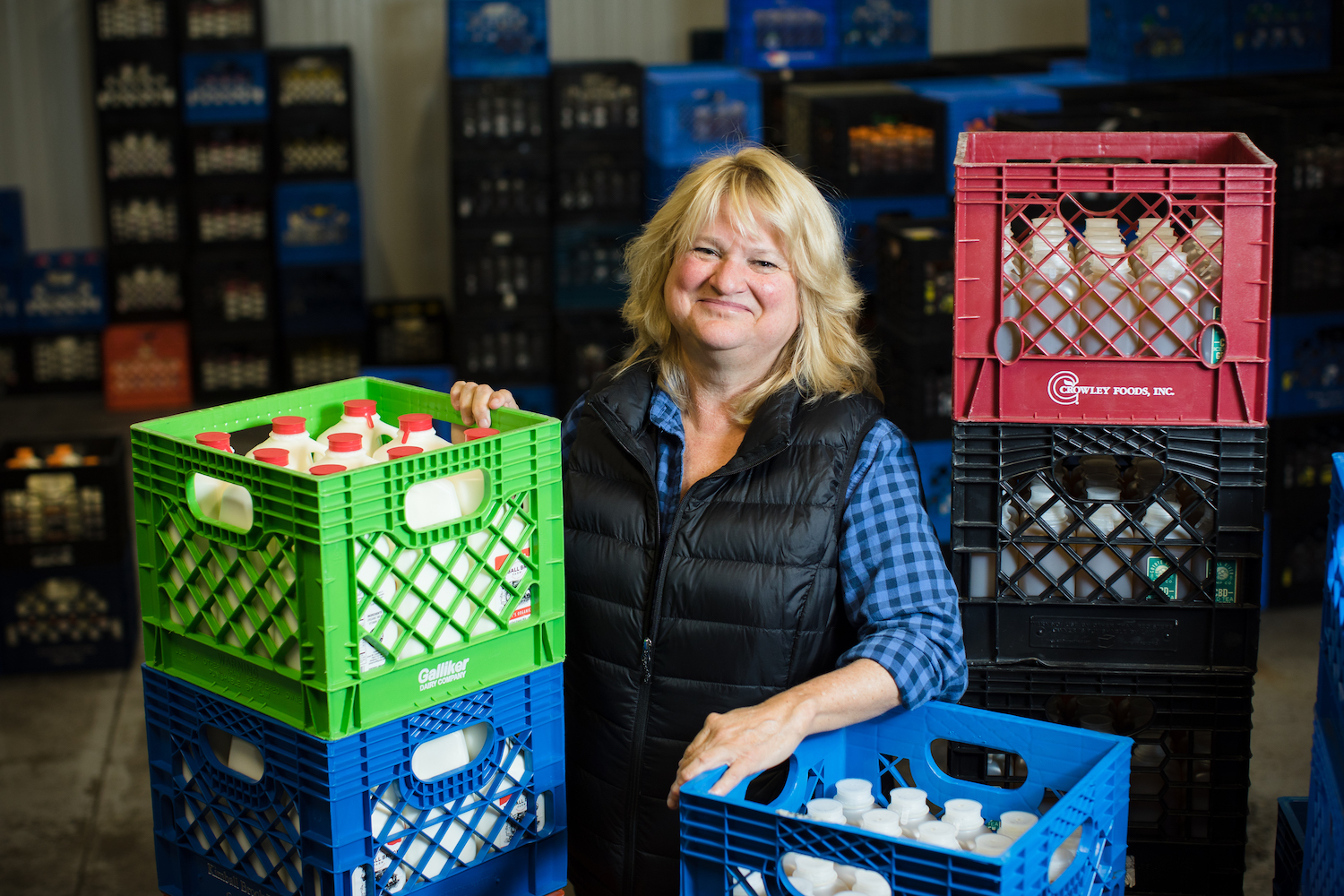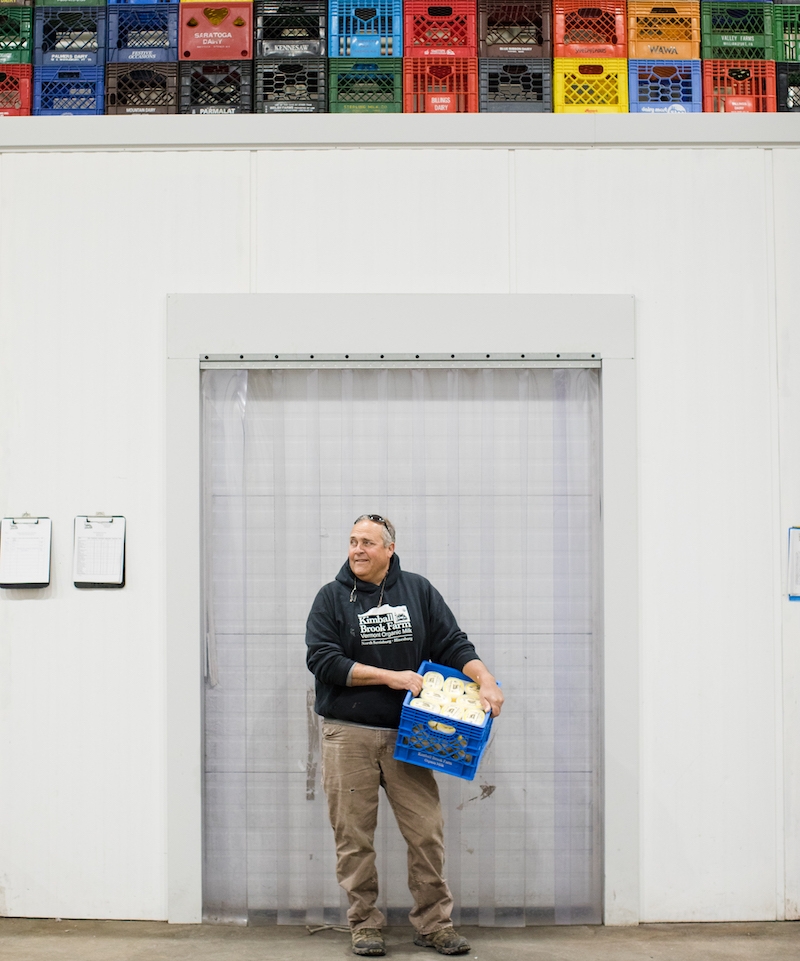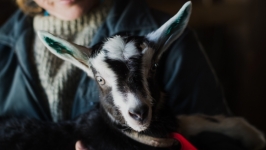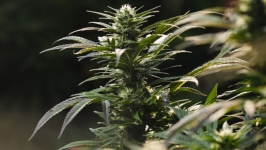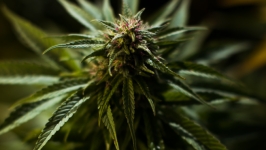Kimball Brook Farm
Kimball Brook Farm is steeped in history. Covering 900 acres of organic land in North Ferrisburgh,Vermont, 200 cows graze the expanse of grassy fields; several are descendants of the original herd.
The farm was settled by Daniel Kimball of New Hampshire in the late 1700s. His sons continued running the farm until it was purchased by Edward Danyow in 1960. Then, in 1967, the DeVos family purchased the farm, moving their complete herd of 50 cows to Vermont from Monroe, New York, by 1968.
After John DeVos Jr. and his wife, Sue, had been operating the farm for over 30 years, current owners John DeVos III (JD) and his wife, Cheryl, took over the business in 2001. They expanded the herd from 80 cows to 200 and added a milking parlor. Cheryl DeVos, a first-generation farmer who grew up in California, and her husband JD, a third-generation farmer, went to high school together but wouldn’t reconnect and marry until years later.
When JD and Cheryl took over the farm, they knew they eventually wanted to transition to organic. The process took three years, but by 2005, they were ready to make their first shipment of organic milk. During this time, all of their milk was shipped raw to be processed by Horizon, but the DeVoses thought there could be a better way. They knew it wouldn’t be easy to process all of their own milk, but they did think it could potentially be profitable and give them more control over their products.
With the Vermont Dairy Farm of the Year (2011) accolade under their belts, Green Mountain Organic Creamery, located in the former Saputo Cheese plant in Hinesburg, officially opened in May 2012. Thus, allowing the DeVoses to process all of their milk in-house. “It took us four years to figure out how to do it,” DeVos says. “It wasn’t hugely profitable and initially the dairy was supporting the creamery, but now the reverse is true.”
Recently, when the DeVoses looked over their books with their business consultant, they discovered that they had been keeping their milk prices too low. They have since instituted two price increases, and although sales of the milk have decreased, it has also allowed for a bit of profit.
Despite the price increase, the duo has spent the past year exploring other ways to remain viable in an increasingly challenging dairy landscape. That’s where their CBD-infused iced teas come in. The idea to experiment with CBD came from the DeVos’s son-in-law who works for a Vermont hemp company. Initially, Cheryl, who has lived with rheumatoid arthritis since she was a teen, began experimenting with CBD on herself. She found that over the course of one year, she was able to wean herself off the prescription medication she had taken to manage the condition for years. She has heard similar testaments from customers who have told her that CBD helps them with everything from anxiety to getting more sound sleep. Currently, Kimball Brook sources the hemp for their green tea from Northeast Hemp Commodities, but by this summer, they would like to try their hand at growing their own.
The response to the CBD teas has been extremely favorable. By Cheryl DeVos’s own account, sales of the CBD green iced tea are targeted to hit $75,000 in 2018. She posits that that total could reach a half million if they can do the same amount of sales in 2019, especially as the teas make their way into select Kroger supermarkets this April.
According to DeVos, CBD products have a 50% profit margin whereas dairy is only 35%. “It has become harder to make a living off of dairy. If we can add CBD to a couple of the dairy products, maybe we could have those margins there as well,” DeVos says. Although all Kimball Brook products are organic, they won’t be able to call their CBD products organic until the USDA clarifi es its rulings with the new Farm Bill.
In addition to infusing products with CBD, the DeVoses have engaged in a number of collaborations. Up until recently, they were supplying Stonyfield Farm with milk, but due to oversupply of organic milk, that contract has been put on hold. However, they remain the heavy cream supplier for Lake Champlain Chocolates, and last year, they began making their first cheese in conjunction with Grafton Village. Kimball Brook has never made cheese before, and the collaboration with Grafton seemed like a great opportunity to elevate both brands.
Currently, the Kimball Brook Farm team, made up of six full-time employees, milks approximately 200 cows a day. The herd consists of Holsteins, Jerseys and Jersey/Holstein crosses as well as a smaller herd of 150 heifers (teenagers) and calves coming along. The farm produces about 7,500 pounds of milk per day, which is spread among all of their products; all the milk is used at the creamery.
Cheryl says, “JD and I spend most of our days fixing all the things that can go wrong on a farm with 200 mature cows. Veterinarian calls, machine repair, bookkeeping, moving animals to different pastures, etcetera.”
Likewise, there is constantly a flurry of activity at the creamery, where 11 employees (including truck drivers) work to bottle, market and distribute milks and creams, iced teas and lemonade. Butter is also made once every few weeks. Kimball Brook assembles, bottles and packages organic cream-top milk, whole, 2%, 1% and skim milks, heavy cream, half-and-half and fl avored milks ranging from the classic chocolate to mocha flavors. The iced teas include organic black tea with lemon and green tea with mint, which are also both off ered with CBD, in addition to the maple lemonade.
Undoubtedly, this is a lot to juggle day to day coupled with the stress of simply making a living. As the farm and creamery move forward, the DeVoses are looking to focus more on the creamery by selling their herd to one or more organic dairies in Vermont. “We hope it helps them out,” DeVos says. “Th en, that farm or farms can produce great milk for us. We want other farms to have a chance.”
Over the years, one of Kimball Brook’s selling points has been that the milk comes from a family farm. This won’t change with the sale, Cheryl stresses. She wants people to know that Kimball Brook will still produce “awesome tasting milk,” but it may come from one or more family farms in the years to come instead of their own.
Kimball Brook Farm | @kimballbrookfarm
Northeast Hemp Commodities | @northeasthempcommodities
Stonyfield Farm
Lake Champlain Chocolates | @lcchocolates


